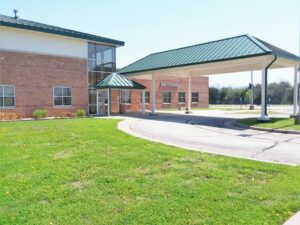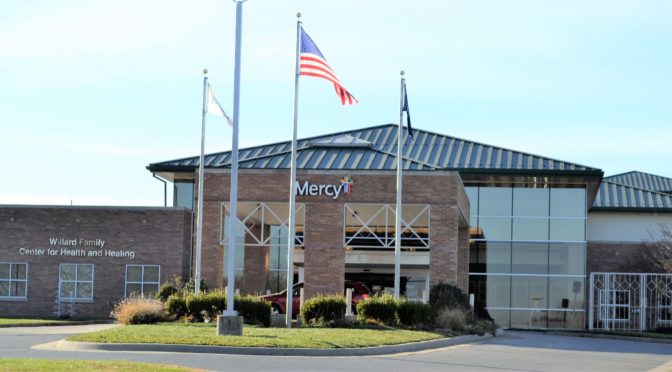Governor Laura Kelly Sends Letter Urging LCC to Extend Disaster Declaration
TOPEKA – The following is a letter from Governor Laura Kelly urging Senate President Ty Masterson and members of the Legislative Coordinating Council to extend the current State of Disaster Emergency Declaration. View a PDF of the letter here.
President Masterson,
On May 24, 2021, I submitted my first application for a 30-day extension of the COVID-19 state of disaster emergency to the Legislative Coordinating Council (“LCC”) pursuant to Senate Bill 40’s amendments to the Kansas Emergency Management Act (“KEMA”). K.S.A. 48-924(b)(3). Please consider this letter my specific application to extend the COVID-19 state of disaster emergency up to and including July 15, 2021.
While these conversations took place back in March, I do want to point out that my Chief of Staff discussed with legislators during session that the objective has been to get to the fall of 2021 and the start of the new school year to ensure that vaccine efforts are not stalled or impeded. To build on those conversations, I am including with this specific application an outline of the current plan regarding the State Emergency Operations Center (“SEOC”) and a timeline for demobilization of those efforts. This plan will include the following components:
- Priorities and objectives to be completed by August 30, 2021;
- SEOC COVID-19 activities closure timeline;
- Rescinding or sunsetting of current executive orders based on the priorities and objectives to be achieved by August 30, 2021.
The plan I present to you in this application continues to reduce the number of activities and pandemic emergency executive orders as we move closer ending the emergency declaration. Ultimately, this plan will require extensions from the LCC to August 30, 2021 as outlined below.
Priorities and Objectives to be Completed by August 30, 2021
There are several priorities that continue to need the attention of the State of Kansas and that require an extension of the state of disaster emergency declaration. First, we need to continue efforts to vaccinate school-aged children to allow schools to resume normal activities beginning this fall. As of June 11, 2021, Kansas has vaccinated 48,045 (20.1%) of children age 12-17. Based on current projections, we anticipate being able to have between 100,000 (42%) to 118,000 (49%) of this age group vaccinated by the end of August. There was a notable decline in the rate of children vaccinations as school ended for the summer. Vaccination efforts planned around the back to school period of early to mid-August will greatly increase the rate of vaccinations for this age group.
Second, we need KDEM to continue to support the distribution and administration of the COVID-19 vaccine through our mobile clinics. The Kansas National Guard (“KSNG”) has administered 122,323 vaccines with 4,360 of those being administered since May 28, 2021. These efforts are directly tied to Executive Order 21-21 through the use of contract nurses who are able to perform vaccinations more easily under the order’s provisions. These contract nurses have delivered 45,981 vaccines across the state of Kansas. We continue to receive requests from employers to do onsite vaccination clinics, which is important to continue to vaccinate the workforce. To date, we have completed vaccine clinics at 47 employer locations across the state. The total number of employees who have had the opportunity to get vaccinated through this employer-partnership exceeds 40,000 Kansans. And, as of the writing of this letter, there are an additional 12 employers who have requested vaccination clinics for their nearly 5,000 (total) employees that are being scheduled. We have an additional 20 community vaccination clinics already scheduled between June 12 and July 27, 2021.
Third, we continue to receive resource requests from counties and hospitals that need to be fulfilled. We have received 5,090 resource requests for personal protective equipment (PPE), supplies, personnel and equipment. We have delivered 114,234 cases of PPE through these requests. Since May 28, 2021, there have been 26 requests, totaling 28,976 cases of PPE. Some of this equipment, such as ventilators, will need to be returned, inventoried, and receive maintenance work. Having a scheduled ramp-down will give counties and hospitals time to plan and understand that these resources will become unavailable after August 30th.
Fourth, as outlined below regarding executive orders, we need to continue requiring testing at our adult care homes and underserved populations. KSNG has tested over 30,603 individuals and transported over 26,304 samples to Kansas Health and Environment Laboratory (KHEL) with 297 of those samples since May 28, 2021. While these efforts will ultimately become part of KDHE’s normal operation, we need to continue to support these efforts through August 30th.
Without a disaster declaration in place, these priorities and objectives cannot be effectively accomplished. As you know, aside from removing the legal basis for conducting much of these efforts, the federal emergency response funding Kansas receives may be immediately imperiled if the disaster declaration expires. Pursuant to KEMA, the Adjutant General loses his authority to mission assign agencies such as the Civil Air Patrol, Highway Patrol, and others as part of the state response. These agencies do not have liability protection for work conducted in these efforts absent the emergency declaration.
Additionally, some of our most vulnerable Kansans would lose the emergency allotment of SNAP benefits the federal government provides to states with active COVID-19 emergency responses. Approximately 63,000 Kansas households would be affected by a loss of this additional financial support, and a total of around $14.5 million in additional benefits to those vulnerable Kansans and to our economy would be lost. While many of the elements of our emergency response from last summer are no longer essential, the disaster declaration itself is still essential.
SEOC COVID-19 Activities Closure Timeline
While there are certain activities that need to continue as described above, the list below indicates the mission assignments and activities that have been closed and which ones would be re-opened under an extension of the emergency declaration.
Mission Assignments
|
MISSION ASSIGNMENT DESCRIPTION
|
CLOSURE DATE
|
AGENCY
|
|
Transportation (Vaccine Support)*
|
06/03/2021
|
Civil Air Patrol (CAP)
|
|
Contract Nurses**
|
06/08/2021
|
KDEM
|
|
Security for Vaccine Clinics*
|
06/11/2021
|
KHP
|
|
Facility for Vaccine Clinic*
|
06/11/2021
|
KSHS
|
|
Message Boards*
|
06/11/2021
|
KDOT
|
|
Courier Mission
|
06/11/2021
|
KSNG
|
|
Vaccine Administration
|
06/15/2021
|
KSNG
|
|
EPI Support to ESF 8
|
06/15/2021
|
KSNG
|
|
JIC Support
|
06/15/2021
|
KDOT
|
|
Non-Congregate Shelter Management
|
06/15/2021
|
DCF
|
|
Distribution of Vaccine (FedEx)
|
06/15/2021
|
KDEM
|
|
FirstNet Phones
|
06/15/2021
|
KDEM
|
|
Contracting Support
|
06/15/2021
|
TAG
|
|
JIC Manager
|
06/15/2021
|
TAG
|
* May be extended if emergency declaration is extended.
** Has been transferred to KDHE
Non-Congregate Shelters and Supporting Contracts
|
CITY/COUNTY
|
CLOSURE DATE
|
|
Liberal/Seward
|
06/03/2021
|
|
Salina/Saline
|
06/07/2021
|
|
Emporia/Lyons
|
06/09/2021
|
|
Gardner/Johnson
|
06/15/2021
|
|
Lansing/Leavenworth
|
06/15/2021
|
|
Kansas City/Wyandotte*
|
NLT 07/15/2021
|
* This contract cannot be ended prior to July 15, 2021. Without the declaration extension the state assumes all legal and financial liabilities.
Food & Commodities
|
INVENTORY
|
CLOSURE DATE
|
|
Pantry Packs
|
06/03/2021
|
|
Bulk Food
|
06/03/2021
|
Rescinding or Sunsetting Executive Orders
Our administration has worked diligently to enable our state to responsibly pare down the number of pandemic emergency executive orders in place since the beginning of 2021. As of today, only nine pandemic executive orders remain in effect. In my May 24, 2021 application to extend the disaster declaration, I stated that in the weeks and months to come I would consider rescinding additional executive orders. In that continued effort, on June 14, 2021, I will issue an order rescinding all but two of the nine remaining pandemic executive orders. Orders will be rescinded as follows:
|
Order
|
Subject
|
Rescission Date
|
|
21-10
|
Remote notaries and witnesses
|
July 15, 2021
|
|
21-12
|
Licensure of adult care homes
|
June 15, 2021
|
|
21-16
|
Driver’s license renewals
|
June 30, 2021
|
|
21-17
|
Waiving the waiting week for unemployment benefits
|
June 15, 2021
|
|
21-18
|
Income tax withholding for out-of-state telework
|
June 15, 2021
|
|
21-19
|
Tuberculin testing requirements
|
June 15, 2021
|
|
21-20
|
Deadline for rural water district annual meetings
|
June 30, 2021
|
The two executive orders I do not intend to rescind at this time are 21-15 and 21-21. Executive Order 21-15 is the only mechanism in place to require COVID-19 testing in certain adult care homes licensed by the state. Without this order in place, the state’s ability to ensure the health and safety of staff and residents at such adult care homes will be severely compromised. Executive Order 21-21 grants temporary authority to certain medical personnel to administer COVID-19 vaccinations. Continued efforts to vaccinate as many Kansans as quickly as possible will be unnecessarily impeded if it expires.
The time to conclude our emergency response to the COVID-19 pandemic under KEMA and to transition to a new normal for dealing with COVID-19 through standard authorities is approaching, but that time has not yet arrived. At the LCC’s May 28, 2021 meeting, some LCC members indicated that they wanted to see a plan for how we wind the emergency response down and return to normal. Our administration has now provided that plan. It will take until August 30, 2021, to execute it.
As circumstances have changed, we have transitioned to an emergency response that has been trimmed down to vaccination efforts, logistical support to local communities, finishing an orderly return to normal in state agencies, and securing federal financial support for our efforts. While COVID-19 could become an ever-present threat to public health if vaccination rates continue to decline, our emergency response will not be permanent. We owe it to Kansans to finish the job and wind down the state of disaster emergency responsibly.
As with the LCC’s previous meeting to consider an extension, at next Tuesday’s meeting Major General Weishaar, Dr. Norman, and members of my staff will be present to answer any questions the LCC may have.
Sincerely,
Laura Kelly
Governor
CC: Representative Ron Ryckman, Speaker of the House of Representatives
Senator Rick Wilborn, Vice President of the Senate
Senator Larry Alley, Senate Majority Leader
Senator Dinah Sykes, Senate Minority Leader
Representative Blaine Finch,
Speaker Pro Tem of the House of Representatives
Representative Dan Hawkins, House Majority Leader
Representative Tom Sawyer, House Minority Leader
Gordon Self, Revisor of Statutes


